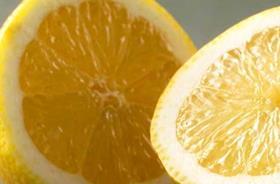
Argentine producers say lemon exports to the US could reach 30,000 tonnes in the first year following the reopening of the market.
José Carbonell of the Argentine Citrus Federation said producers had opted to proceed with caution in the US in order to avoid provoking the ire of Californian producers.
“Our aim is to start off with prudent volumes, perhaps between 20,000 and 30,000 tonnes so as not to generate any adverse reaction from our Californian counterparts,” he said. “We want to consolidate our two businesses and establish healthy commercial and logistics relations with the US trade.”
After pledging that a new import protocol would be in place within weeks, the US moved a step closer to granting access for Argentine lemons on Friday with the announcement that the USDA’s Animal and Plant Health Inspection Service (APHIS) will publish a proposed rule that would amend the regulations to allow imports of fresh lemon fruit from northwest Argentina on Tuesday, 10 May.
APHIS said that after completing a comprehensive pest risk analysis and a visit to Argentina to observe production areas, production and packing practices, and trace back abilities, it had determined lemons produced in northwest Argentina can be safely imported into the continental US utilising a systems approach.
This would require a number of safeguards to be applied across the fruit production process to effectively reduce any risk, including: registration and monitoring of production places and packinghouses; pest-free places of production; grove sanitation, monitoring, and pest control practices; fruit disinfection and treatment with fungicide; lot identification and traceability to the place of production; and inspection for quarantine pests by the Argentine national plant protection organisation.
Additionally, lemons from northwest Argentina would have to be harvested green within a certain time period, or treated for Mediterranean fruit fly in accordance with an approved treatment schedule.
All shipments would require a phytosanitary certificate with an additional declaration stating that the lemons have been inspected and found to be free of quarantine pests and were produced in accordance with the proposed requirements.
APHIS will also conduct a second site visit to Argentina to verify that the country has fully implemented the terms of the operational work plan before this rule is finalized and shipments take place.
Once the rule is published, a public a comment period of one month will begin, after which the new import protocol will come into play.
As expected, the proposal has been met with anger from producers in California. Joel Nelsen, president of California Citrus Mutual (CCM) said it would create the potential for pests and diseases to enter the US.
“Today while the US industry is fighting to stay vibrant against the ravages of an incurable disease, Hulanglongbing, the Obama administration wishes to bring more fruit from pest-infested and diseased areas.”


